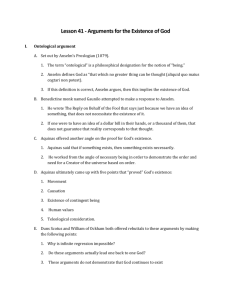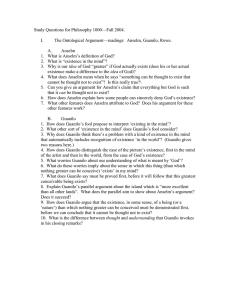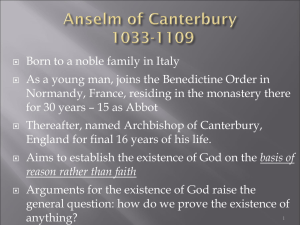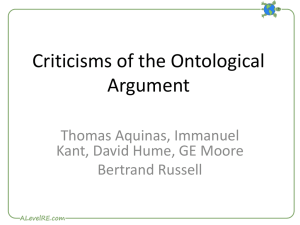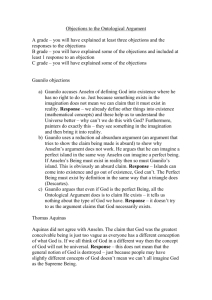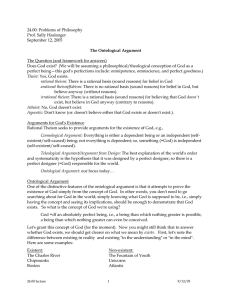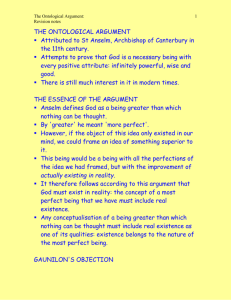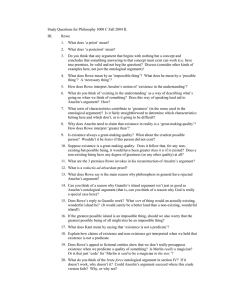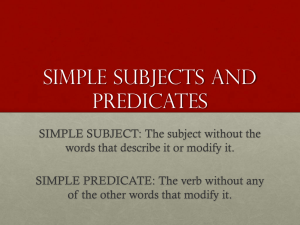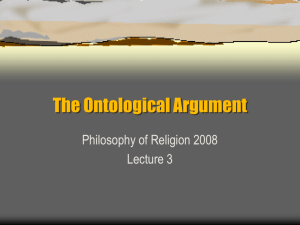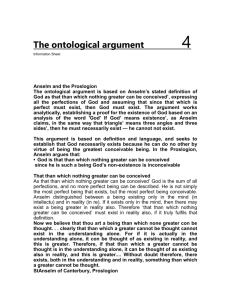nothing existence
advertisement
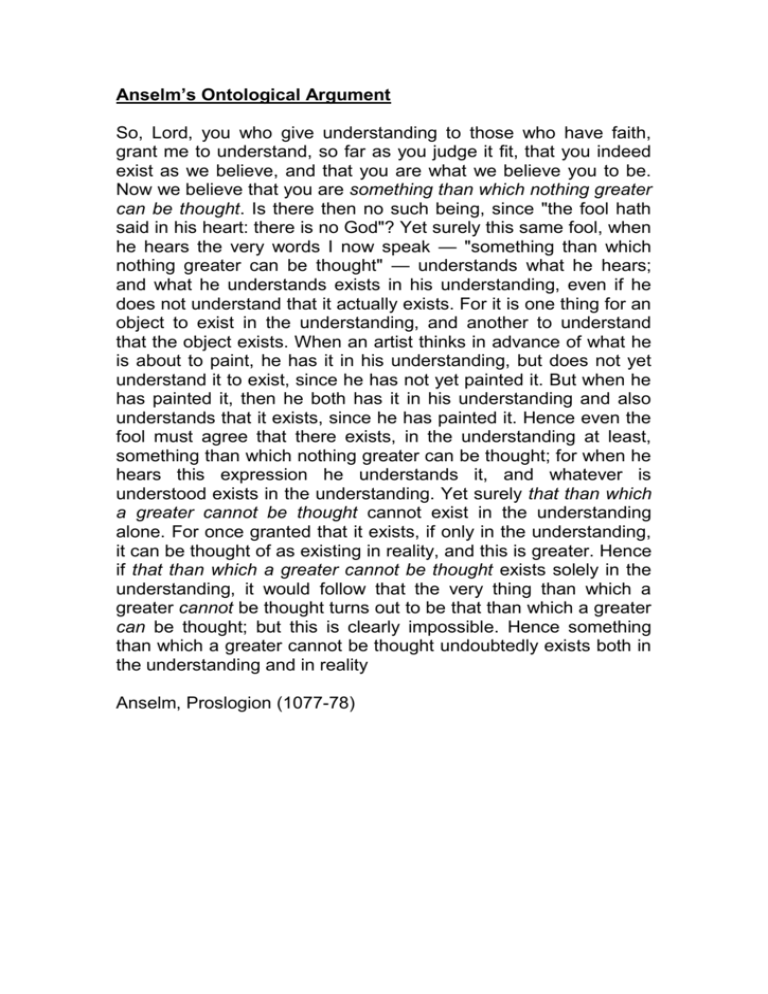
Anselm’s Ontological Argument So, Lord, you who give understanding to those who have faith, grant me to understand, so far as you judge it fit, that you indeed exist as we believe, and that you are what we believe you to be. Now we believe that you are something than which nothing greater can be thought. Is there then no such being, since "the fool hath said in his heart: there is no God"? Yet surely this same fool, when he hears the very words I now speak — "something than which nothing greater can be thought" — understands what he hears; and what he understands exists in his understanding, even if he does not understand that it actually exists. For it is one thing for an object to exist in the understanding, and another to understand that the object exists. When an artist thinks in advance of what he is about to paint, he has it in his understanding, but does not yet understand it to exist, since he has not yet painted it. But when he has painted it, then he both has it in his understanding and also understands that it exists, since he has painted it. Hence even the fool must agree that there exists, in the understanding at least, something than which nothing greater can be thought; for when he hears this expression he understands it, and whatever is understood exists in the understanding. Yet surely that than which a greater cannot be thought cannot exist in the understanding alone. For once granted that it exists, if only in the understanding, it can be thought of as existing in reality, and this is greater. Hence if that than which a greater cannot be thought exists solely in the understanding, it would follow that the very thing than which a greater cannot be thought turns out to be that than which a greater can be thought; but this is clearly impossible. Hence something than which a greater cannot be thought undoubtedly exists both in the understanding and in reality Anselm, Proslogion (1077-78) Summary of Anselm’s Ontological Argument 1) God is defined as a being about which nothing greater can be thought. Let’s label this type of being G. 2) It is possible for G to exist as an idea. (Even if you don’t believe that G could exist in reality, you must admit it that it can exist as an idea). 3) If G only exists as an idea then it would be possible to think of a being that is superior to this i.e. the G that exists not only in the mind, but in reality (a really existing G). Let’s call this being, G . 1 4) G is superior to G because it really exists. But this is absurd. If G is a being about which nothing greater can be thought, then the very idea of a superior being, a G , should not be possible. 1 1 5) It seems that the belief that G exists only as an idea has consequences that are absurd. We must, therefore, reject the idea that G only exists as an idea. 6) If it is impossible for G to exist only as an idea then it must exist in reality as well! Descartes’ Ontological Argument But, nevertheless, when I think about it more attentively, it becomes manifest that existence can no more be separated from the essence of God than the fact that the sum of its three angles is equal to two right-angles can be separated from the essence of a triangle or than the idea of a mountain can be separated from the idea of a valley; so that there is no less contradiction in conceiving a God, that is to say, a supremely perfect being, who lacks existence, that is to say, who lacks some particular perfection, than in conceiving a mountain without a valley. Descartes, Meditations (1641) Problem with Ontological Argument Kant (1724-1804) “existence is not a predicate” A predicate is a property that we give to an object e.g. when we say “the table is red”, “red” is the predicate Existence is already assumed when we make something a predicate of an object, so existence cannot be a predicate. E.g. When I say “the table is red” the table exists in reality or in my mind. Existence is not something I add to the table. The ontological argument only works because it is assumed that existence is a predicate of a perfect being. It is a property that a perfect being is said to have (like moral goodness for example). Properties of Existing perfect Properties of Non-existing perfect being being Omnipotence Omnipotence Omniscience Omniscience Moral goodness Moral goodness Existence --------------------- If existence is not a predicate, then it cannot be added to the list of properties above. We cannot say that the really existing God has more properties than the non-existing God and so we cannot say that it is better. The ontological argument cannot work!
